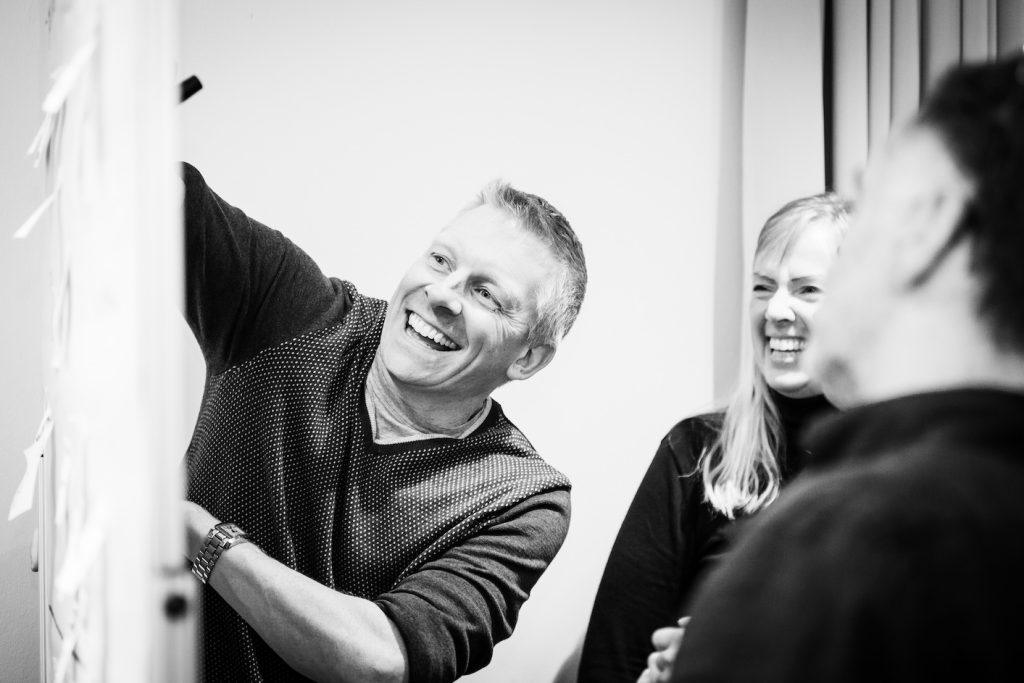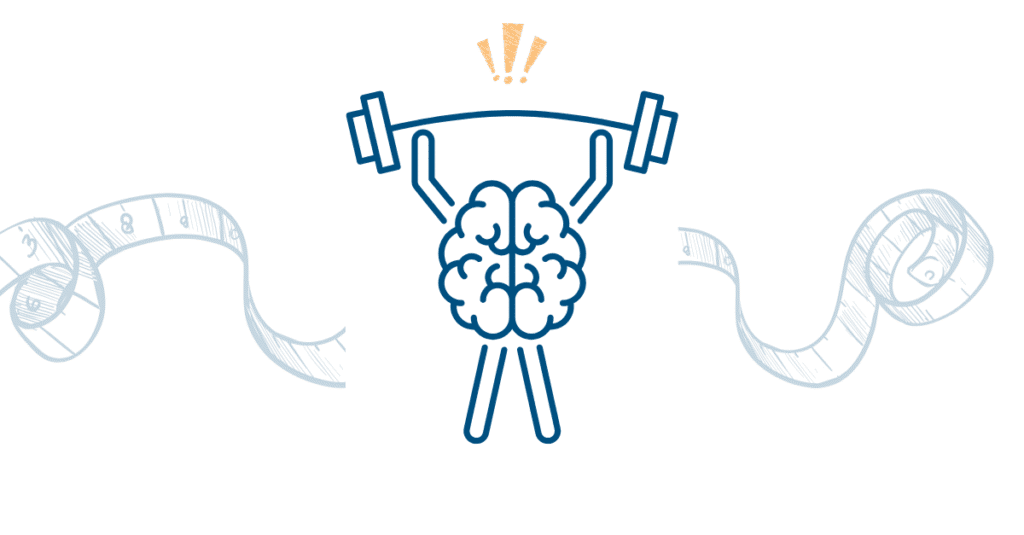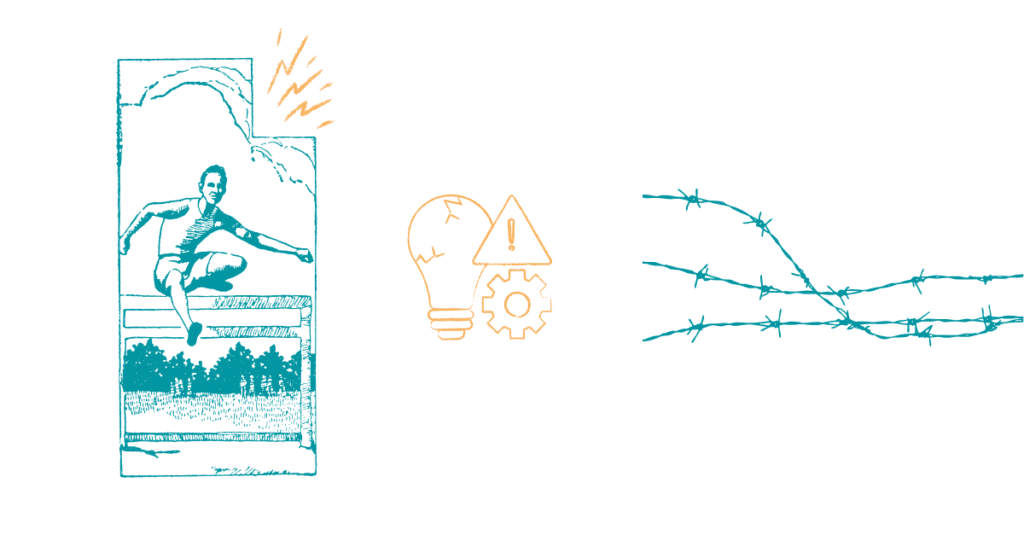Traditional change management approaches often reach their limits – too rigid, too top-down, too little participation. Instead, dialogic organizational development relies on open discussions, genuine participation and joint learning. We explain why this works so well.
What is dialogic organizational development?
Dialogic organizational development is an approach that aims to shape change in companies and organizations through genuine, appreciative conversations. Unlike traditional change management methods, which often rely on rigid planning processes and top-down specifications, this approach places dialog at the heart of change. This is because sustainable change does not come about through directives from above, but through an open exchange between the people who shape an organization on a daily basis.
From classic change management to dialogic development
In many companies, change is still seen as a linear process: The executive level and management define goals and strategies, set up measures and expect employees to implement them. In practice, however, such approaches often reach their limits. Resistance arises because employees do not feel involved or because important perspectives are overlooked. Instead, experience shows that change management processes are more successful when people are actively involved – when they are heard, understood and taken seriously. This is precisely where dialogical organizational development comes in.
The core idea: enabling change through conversations
The dialogical approach assumes that organizations are constantly evolving through communication. Companies are not machines that can simply be reprogrammed, but living social systems that are shaped by the interactions of their members. Change must therefore come from within – through open discussions, joint reflection and a culture of mutual appreciation.
A central principle of dialogical organizational development is the assumption that knowledge and solutions already exist within the organization. Instead of using external experts with prefabricated concepts, it is trusted that the people in the organization can find the best answers to their challenges themselves – if they are given the right space for exchange.
Dialogue as the key to self-organization
Dialogue-based organizational development promotes a culture in which people dare to contribute their perspectives, question them critically and develop new solutions together. The focus here is not only on the spoken word – listening is also a crucial skill. Only when managers and employees really understand what moves others can sustainable change be achieved.
Instead of fixed change roadmaps, dialogical organizational development focuses on emergent change processes: Companies develop organically by continuously reacting to new findings. This type of self-organization not only creates more flexible structures, but also more commitment and personal responsibility in teams.
Why this approach is becoming increasingly important
In an increasingly complex and dynamic world, it is no longer enough to view organizational development as a one-off project with a fixed end point. Markets, technologies and social conditions are constantly changing – and companies need to be able to respond flexibly.
Dialogic organizational development helps to strengthen this adaptability. It makes organizations more resilient by unlocking people’s potential and promoting a culture of continuous learning. The key to this lies in the way we talk to each other – and whether we are prepared to see changes not as top-down imposed measures, but as joint development processes.
The principles of dialogic organizational development
Dialogic organizational development is based on a number of fundamental principles that ensure that change is not understood as an isolated management process, but as a collaborative development. The focus is on participation, appreciative communication, openness to new perspectives and a high degree of self-organization. These principles form the foundation for a corporate culture in which people can actively participate and shape change from within.
1. Participation: turning those affected into participants
In many organizations, change processes are planned by a small group and then “rolled out” to employees. The problem is that those who have no influence on the design of changes often feel powerless or ignored – and meet innovations with resistance.
Dialogical organizational development, on the other hand, relies on genuine participation. This means that employees are not only informed, but actively involved in the development process.
Their experiences, ideas and perspectives are essential building blocks for sustainable change. After all, those who help shape the process take responsibility and support new solutions with conviction.
2. Appreciative communication: listening as the key to change
Dialogue is not just about talking to each other, but above all about really listening to each other. Appreciative communication is therefore a central element of dialogical organizational development. It is about being open to different opinions, expressing criticism constructively and arriving at new insights together.
Appreciative communication creates trust – and trust is the basis for change. When people feel safe to contribute their thoughts and ideas without fear of negative consequences, a climate is created in which creativity, innovation and collaboration are encouraged.
3. Openness to new perspectives: using diversity as a resource
In a complex environment, there is rarely just one right solution. Organizations that want to successfully master change must therefore establish a culture of openness.
Different perspectives are not obstacles, but valuable resources that make it possible to look at challenges from different angles and develop innovative solutions.
This also means constantly questioning existing beliefs and routines. Managers play a decisive role here: they must not only reflect on their own points of view, but also actively encourage alternative perspectives to be heard and taken seriously.
4. Self-organization: making change emergent instead of linear
Many traditional change processes fail because they follow a linear plan that leaves little room for unexpected developments. However, organizations are not machines that can be rebuilt according to a fixed blueprint – they are living systems that are constantly evolving.
Dialogic organizational development therefore relies on self-organization. Instead of prescribing rigid measures, a framework is created in which teams can develop solutions independently. Managers do not act as decision-makers, but as facilitators who ask the right questions and open up spaces for reflection and exchange.
Self-organization also means that change is not seen as a one-off project, but as a continuous process. Instead of developing long-term master plans, small experiments are encouraged from which lessons are learned. This iterative approach ensures that companies remain flexible and can adapt dynamically to new circumstances.

Why is dialogic organizational development so effective?
Many change processes in companies do not fail due to a lack of strategies or resources, but due to a lack of acceptance and implementation power within the organization itself. If employees do not feel involved or do not understand the purpose of a change, resistance arises that can block the entire process.
Dialogic organizational development takes a fundamentally different approach to this problem: It ensures that change becomes more deeply rooted by focusing on genuine participation, open communication and shared learning. This not only minimizes resistance, but also strengthens the innovative power, motivation and long-term adaptability of the organization.
1. Promoting innovative strength and agility
Innovation is not created through fixed processes or top-down specifications, but through open exchange between people with different perspectives. In a company that works according to the principles of dialogical organizational development, this exchange is specifically encouraged.
Instead of clinging to ready-made solutions, teams are encouraged to develop and try out new ideas. Managers act as catalysts, asking questions and providing food for thought rather than providing ready-made answers.
The result: an organization that is constantly evolving because it does not insist on rigid structures but can adapt flexibly to new challenges.
2. Increased acceptance and motivation of employees
Everyone wants to feel that they are being heard and taken seriously. But in many change processes, the exact opposite happens: decisions are made over the heads of employees without them having any influence on them.
Dialogue-based organizational development fundamentally changes this dynamic. It ensures that people are actively involved in change processes – not just as executors, but as co-creators.
This not only leads to greater acceptance of change, but also to more motivation and personal responsibility. Those who are able to help shape change feel more connected to the organization and support change out of conviction instead of experiencing it as heteronomy.
3. Building an open, learning organization
Change is not a one-off process, but a constant reality in a dynamic world. Companies that want to remain successful in the long term must be in a position to learn and develop continuously.
This is precisely where dialogical organizational development comes in: It promotes a corporate culture in which reflection, feedback and exchange are a matter of course. Mistakes are not seen as failures, but as learning opportunities. Knowledge is not hoarded in silos, but actively shared.
This creates a learning organization that can not only react more quickly to new challenges, but also remains more competitive in the long term.
4. Reduction of resistance and silo thinking
Internal blockages are a common reason why change processes come to a standstill: Departments work against each other instead of with each other, entrenched routines are not questioned and managers fear a loss of control.
Dialogue-based organizational development breaks down precisely these barriers by getting people talking to each other. Instead of relying on rigid hierarchies or bureaucratic processes, bridges are created between different teams and levels.
This not only reduces resistance to change, but also promotes a corporate culture in which cooperation and joint design take the place of competitive thinking and isolation.
Methods and tools for practical use in companies
Dialogical organizational development is not an abstract concept, but a practical approach that can be specifically integrated into everyday business life using various methods. The focus is on formats that promote open exchange, create spaces for reflection, and actively involve employees in change processes.
The following methods are proven tools to support dialogic change in organizations.
1. Dialogic Conversations and Storytelling: Shaping Change through Narratives
People understand the world through stories. Narratives help us create meaning, process experiences, and identify with change. Storytelling therefore plays a central role in dialogic organizational development.
Instead of emphasizing abstract strategies or key performance indicators, the goal is to embed changes in a comprehensible, tangible narrative. Leaders can use storytelling specifically to convey a shared vision and emotionally engage employees.
At the same time, dialogic conversations are crucial for opening up new perspectives. In an appreciative environment, employees can share their experiences, ask questions, and develop new solutions together.
2. Future Search and Appreciative Inquiry: Large Group Formats for Profound Change
When it comes to developing a shared vision for the future or shaping strategic change, dialogue-oriented large group formats are particularly effective. Two proven methods are Future Search and Appreciative Inquiry.
- Future Search brings employees from different departments together to discuss challenges and future perspectives. In several phases, the past is reflected upon, the present is analyzed, and a desirable future is designed.
- Appreciative Inquiry relies on an appreciative approach: Instead of analyzing problems, the focus is on strengths and positive experiences. This creates sustainable change that builds on existing potential.
Both methods help to view change processes not as a threat, but as a shared creative task.
3. Peer Consultation & Reflecting Teams: Reflection Spaces for Managers and Teams
An organization can only develop further if its managers and teams are also continuously learning. Peer consultation and reflecting teams are methods that specifically create spaces for reflection and help develop new solutions to challenges.
- Peer consultation is a structured format in which a group of managers or employees support each other in addressing current challenges. Targeted questions and feedback from different perspectives generate new approaches to solutions.
- Reflecting teams go a step further: While one group actively discusses a problem or issue, a second group initially simply listens. They then reflect their observations without directly judging. This method promotes deeper insights and opens up new ways of thinking.
Both approaches help identify blind spots, break entrenched thought patterns, and embed genuine learning processes within the organization.
4. Open Space & Barcamps: Dynamic participation formats for large groups
Traditional meetings and workshops often follow a rigid schedule that leaves little room for spontaneous ideas and initiative. Open Space and Barcamp, on the other hand, offer flexible structures in which employees can actively engage with the issues that truly concern them.
- Open Space is based on the principle of self-organization: There is a central theme, but no fixed agenda items. Participants contribute their own questions and ideas and independently organize discussion rounds in small groups.
- Barcamps are a modern form of open space, often used in the digital and creative industries. Here, participants themselves determine which sessions take place and which topics are discussed.
Both formats ensure that not only the loudest voices are heard, but that everyone involved can actively contribute to the development of new solutions.
Get exclusive access to cutting-edge insights and expertly curated tools on digital evolution, cultural transformation, future-forward thinking, resilience, mindfulness, and the future of work.
Success Factors and Challenges
Dialogic organizational development can bring about enormous change – but it doesn’t happen automatically. For this approach to achieve its full effect, certain prerequisites must be met. At the same time, there are typical challenges that companies should be aware of and actively address.
1. Prerequisites for Successful Implementation
For dialogical organizational development to work successfully in practice, several basic conditions must be met:
- A culture of trust: Employees must feel safe to express their opinions openly – without fear of negative consequences. Without trust, dialogue remains superficial, and change processes fizzle out.
- Genuine participation instead of illusory participation: If employees are involved in dialogues but their suggestions ultimately play no role, this leads to frustration and resistance. Participation must be taken seriously.
- Time and space for discussions: Change through dialogue requires space – in the form of regular meetings, workshops, or open exchange formats. Companies must consciously plan this time instead of letting dialogue run “on the side.”
- The right attitude for managers: Leadership must move away from the classic “command and control” mentality and instead assume a moderating, supportive role. Managers are not the sole decision-makers, but the facilitators of dialogue.
If these prerequisites are met, an organization can embark on the path to successfully establishing dialogic processes. However, there are also challenges that can complicate change.
2. Typical hurdles and how to overcome them
Every change brings resistance – and this also applies to the transition to a dialogic approach. The most common challenges are:
- Skepticism and uncertainty within the team: Many employees are accustomed to decisions being made from the top down. The transition to dialogic processes can initially trigger uncertainty. Clear communication and initial successes help build trust in the new approach.
- Time and economic pressures: Companies are often under great pressure to perform and lack the capacity for lengthy dialogic processes. However, in the long run, a dialogic culture saves time by reducing resistance and avoiding wrong decisions.
- Impatience among managers: Dialogic organizational development is not a quick sprint, but a long-term process. Managers must let go of the expectation that visible results will occur immediately. Change takes time.
- Old hierarchies and structures: In highly hierarchical organizations, it can be difficult to establish genuine dialogues on equal terms. Here, it is important to proceed step by step and create spaces for dialogue that enable genuine participation.
If companies are aware of these challenges and actively work to overcome them, dialogic organizational development can bring about profound transformation in the long term.
3. The role of managers: Facilitator instead of decision-maker
Managers play a central role in dialogic organizational development. Their task is no longer to make decisions and give instructions alone – but to facilitate dialogue.
This means:
- Ask questions instead of providing quick answers
- Make different perspectives visible and promote them
- Encourage employees to actively participate
- Create a framework for self-organization and personal responsibility
This new role requires a shift in thinking – but it pays off. When leaders actively shape the dialogue, a culture emerges in which change is no longer prescribed, but developed together.
triangility: We make your organization future-proof
Dialogical organizational development is more than a method – it is a fundamental principle for making companies future-proof. In a constantly changing world, rigid structures and hierarchical decision-making processes can no longer be the solution. Change must emerge from within – through genuine conversations, shared learning, and a culture of openness.
We can help you achieve this. With our customized training and consulting formats, we help companies establish a culture of dialogue and successfully manage change processes. Our experienced coaches accompany leaders and teams as they move away from traditional change management approaches and develop new forms of collaboration.
Let’s take the next step together – for organizational development that really works.

Determine your location, define lines of development and navigate into the future






